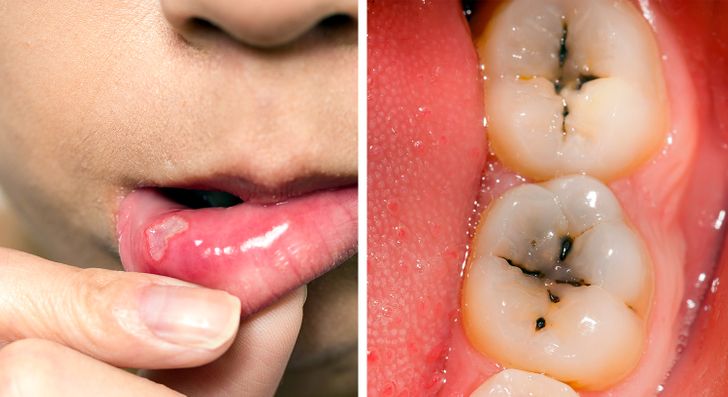What is the medicine for gluten some problem is there every time not having proper food mouth ulcer is also there teeth paining
9 Signs You’re Gluten Sensitive, and This Is Important to Know
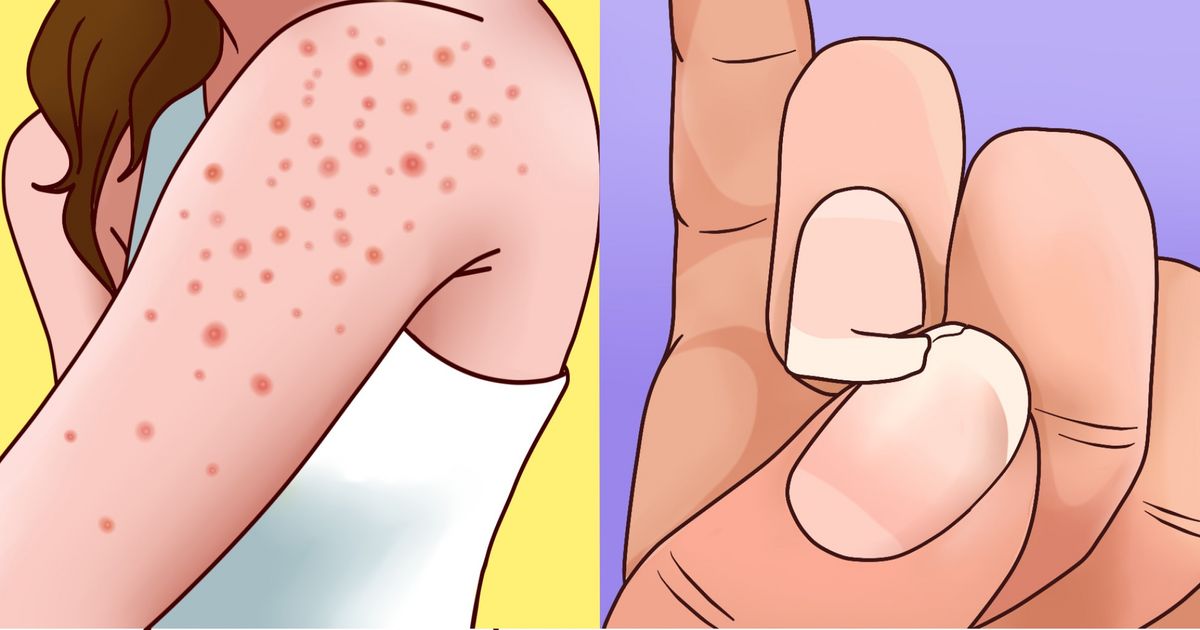
Gluten is called a silent killer because it can cause chronic damage throughout the body. Sometimes the patient isn’t even aware of the consequences of gluten consumption. So, it’s better to check if your body has a gluten intolerance.
1. Problems with the gastrointestinal tract
Symptoms are mainly associated with the intestines: nausea, bloating, diarrhea, abdominal pain, and even constipation. People often associate these symptoms with other diseases. And the patients are mistakenly diagnosed with irritable bowel syndrome (IBS). Studies confirm that 10-15% of the world population suffers from IBS. But this diagnosis can lead to people with gluten sensitivity who don’t receive proper treatment so the symptoms don’t disappear.
2. Unexplained weight changes
Gluten intolerance can lead to both weight loss and to weight gain for no apparent reason. This happens due to inflammatory processes at the cellular level and metabolic disorders. A sudden change in weight may accompany other unpleasant diseases. But it can be related to gluten intolerance if it’s accompanied by other symptoms of malabsorption.
3. Hormonal Imbalance
There is a direct relationship between gluten intolerance and hormonal disorders which can occur as an irregular menstrual cycle, sudden weight fluctuations, PMS, and sleep disorders. Hormonal failures caused by gluten intolerance can be amplified many times during puberty, pregnancy, and menopause. Keep in mind that these symptoms are mainly recognized among women.
4. Problems with the central nervous system
Gluten increases inflammation and permeability of the intestine. As a result, the symptoms of gluten sensitivity can include problems with concentration, depression, anxiety, insomnia, and fatigue. Some people with gluten intolerance experience irritability and feelings that they easily lose their train of thought and have poor concentration.
According to information gathered from a study, people with gluten intolerance are more prone to migraines than other people. The causes of headaches can be very different. A person who is allergic to gluten can experience a headache 30-60 minutes after eating.
5. Skin and nails problems
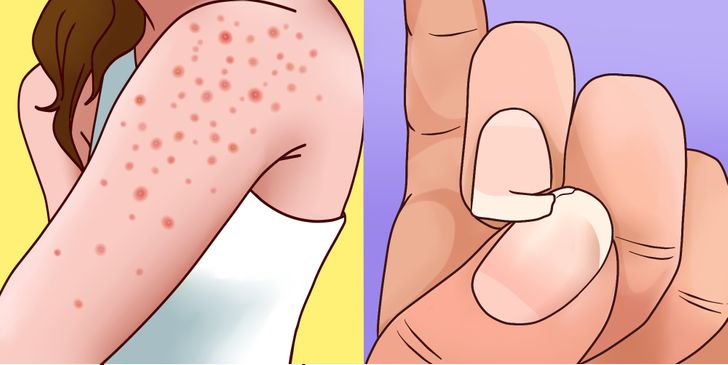
Hair keratosis and herpetiform dermatitis are 2 skin conditions directly related to gluten intolerance. The symptoms include itchiness and rashes that can appear on your hands, torso, face, buttocks, elbows, and hairline. Another symptom is weakened and brittle nails. Other skin irritations like mimic eczema can signal gluten-induced blockage.
6. ADHD
Another disorder that may be associated with gluten intolerance is attention deficit hyperactivity disorder. ADHD can manifest in both children and adults. People with this disorder have a short attention span and problems with self-control. A gluten-free diet can help reduce the symptoms of ADHD.
7. Poor condition of the teeth
In case of gluten intolerance, absorption of the necessary elements and minerals in the intestine is impaired. This also applies to calcium. The result can be problems with the teeth and oral cavity: hypersensitivity of the enamel, tooth decay, cavities, and ulcers of the mucous cavity. If you take good care of your teeth, but still notice some issues, the reason may be caused by your gluten consumption.
8. Iron deficiency anemia
Very often, Celiac disease is diagnosed because of iron deficiency anemia. Its symptoms include reduced blood volume, fatigue, shortness of breath, headaches, pallor of the skin, mucous membranes, and even arthritis. Iron is poorly digestible since, with gluten intolerance, there’s an impairment of iron absorption in the intestine.
9. Autoimmune diseases
Many people with autoimmune diseases have a history of gluten intolerance. Celiac disease is an autoimmune disease in which the immune system attacks its own intestine cells after gluten enters it. The problem is aggravated by the fact that this autoimmune disease increases the risk of developing other autoimmune diseases, such as autoimmune thyroiditis, autoimmune liver disease, Crohn’s disease, diabetes, vitiligo, rheumatoid arthritis, and multiple sclerosis.
How to treat gluten sensitivity?
1. Get tested. Your doctor will take a blood sample and check it for antibodies that are usually present in the blood of people with Celiac disease. Before the examination, you need to include gluten in your diet as this will help to avoid inaccurate results.
2. Eliminate gluten from your diet. It’s contained in:
- Wheat;
- Rye;
- Bulgur;
- Flour;
- Semolina;
- And in a number of other foods.
Always check the composition of the product. Give preference to products which contain the label “gluten-free.”
Comments
Yar.... I think I have skin and nail problems. So, how can I treat this. Is it because of gluten?
My wife has the same problems. I didnt know the facts behind it but I dont let her eat bread and other related food. honestly my wife has all the above mentioned problems. I found a near substitute and its working.. rice,green gram, few variations of lentils (add any kind of pea if need) , mixed together and grind to get flour and make pancake type ( "thosa" some people call it) its healthy and delicious.
I have struggled with knowing what exactly my problem with wheat/gluten is called. If I eat granary bread (bran) then OMG i am in so much pain from trapped wind, gripe pains & watery stools & basically need an ambulance the pain is that excruciating. I also feel sick from the pain & it usually lasts about 4-6hrs & completely wipes out all my energy for 2 days after the pain has gone.
I can eat plain wheat flour (white bread, crisps, & pasta with semolina in withoutany problems.
I'm unsure if I can eat brown/wholegrain bread as I'm too terrified to find out. Previously after an attack (when I eat a granary bread sandwich before I knew what caused me this unbearable pain) I have had 2 blood tests taken (both within an hour to 4hrs after eating) & they both came back negative for coeliac (the GP told me that I have to eat what causes you the problem everyday for 6 weeks to be able to get a positive result & get a coeliac diagnosis here in the UK) but there is no way on earth I could eat granary bread/ bran everyday for 6weeks!! It's just not possible & honestly would probably finish me off.
Even if someone offered me a million pounds to eat half of a granary bread sandwich i would tell them to shove it- that is how bad the pain/gripes are for me.
My mum isn't able to eat anything with gluten/ wheat in at all now except manage a packet of crisps (this does give her wind) as she's gotten older & even said that she used to be able to eat pain wheat flour when she was younger but this didn't last the older she got.
My son is now also in the same position as myself & gets the exact same symptoms if he eats bran/granary bread & sadly got it at the very young age of only 7 years old (he is now 13). He also was given a blood test & got the same negative result.
If anyone can advise me on what I have mentioned, so I'm able to put a label to what my son & I do have exactly that would be very helpful as I don't know if we are classed as wheat/gluten intolerant/coeliac etc.
Much appreciated
I have all of these symptoms.... and it is also being worser and worser. What do I need to do?
Related Reads
12 Moments That Show Romance Is Really About Small Acts of Kindness

My In-Laws Forced Me to Leave My Vacation Early—They Crossed Every Line

My Husband Promised to Stop Watching Me Through the Cameras—He Lied

My Neighbor Refused to Help My Autistic Son, She Wasn’t Ready for My Revenge
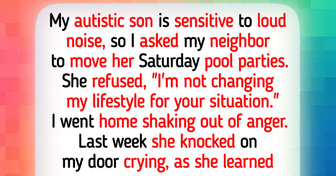
15 Moments That Show Quiet Kindness Keeps the World From Falling Apart

12 Life Moments Where Quiet Kindness Played the Main Role

I Refused to Onboard the Boss Who Destroyed My Career Years Ago

15 Quiet Moments of Kindness That Made the Biggest Impact
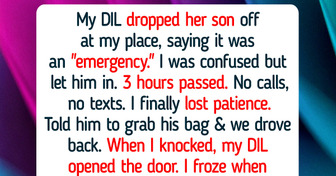
My Parents Chose My Golden Child Brother Over Me—Until They Needed My Help

15 Pets Who Made a Mess and Feel Absolutely No Shame

15 Times People Refused to Be Mean—And Kindness Proved More Powerful

22 Moments That Prove Quiet Kindness Can Work Real Miracles



